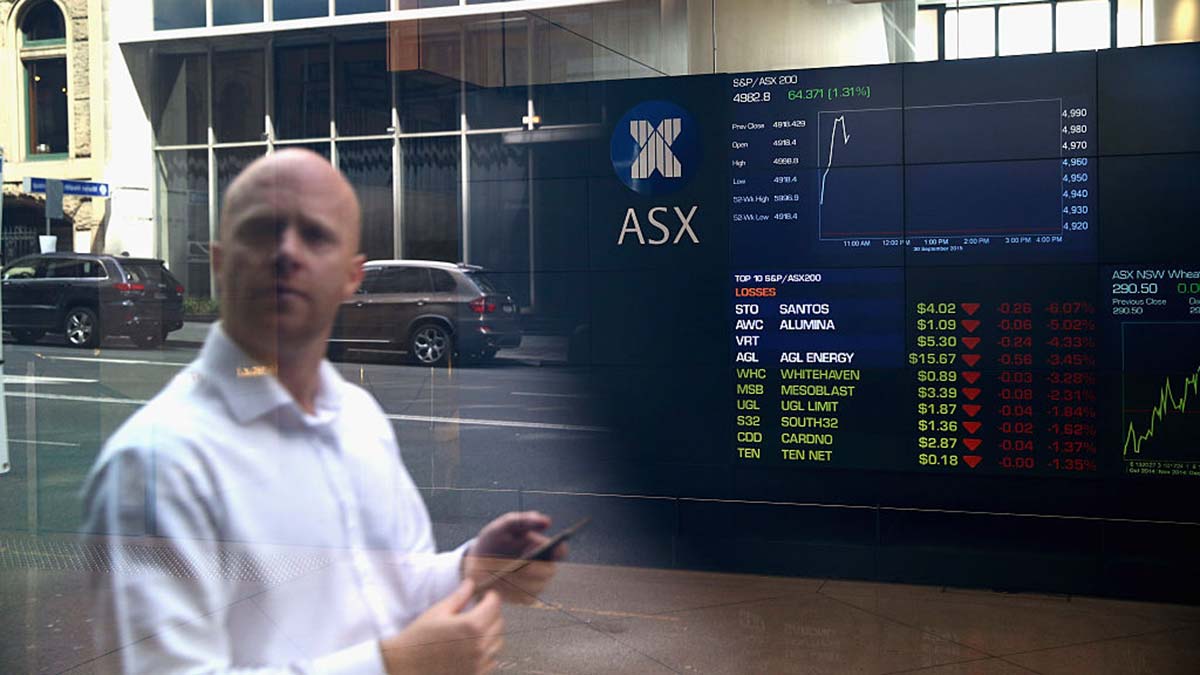The Australian economy and share market have been getting battered by the coronavirus for weeks. Here’s what analysts say we should expect next

The coronavirus is a curveball which markets are still coming to terms with.
A quick glance at the ASX on Tuesday demonstrates that fact, with the index oscillating almost 6% within hours. While perhaps the coronavirus is simply stress-testing what was an otherwise overvalued market, the shockwaves are very much real.
The full impact of the coronavirus may also not be known for quite some time to come but to get a better handle on what to expect, we checked what the eggheads are saying.
Don’t panic
Perhaps the most important advice in volatile times is not to lose your head.
“Diversification remains the best defence against uncertainty,” Shaw and Partners advised in a note issued to Business Insider Australia.
“We suggest investors use the current period of volatility as an opportunity to add quality businesses to portfolios at attractive prices, not to extrapolate the episodic nature of the COVID-19 pandemic and most importantly, not to panic.”
Consumer spending could pose the biggest risk to the economy but a recovery could see markets rally
“We are seeing wealth destruction on an epic scale triggered be the increasing reality of a global pandemic. Since February 20, when the ASX hit a record high of 7289.7, it has lost $440 billion in market value,” John Birkhold, Origin Asset Management partner said in a note.
“Local damage is however dwarfed by global wealth contraction with the US market alone losing USD5.7 trillion from its all-time highs a mere three weeks ago.”
The major risk Birkhold sees stems from people staying home and not spending.
“We’ve gone from a profit recession to a potential global economic recession. Ultimately the only virus-controlling measure that seems to be working is quarantine, which by definition requires individuals to not consume at normal levels.”
“On a positive note, this will be transitory and we will eventually come out the other side once science is able to mitigate nature’s damage. Well-managed companies with low financial leverage and reasonable market expectations should be in a position to benefit and increase their market share.”
US stimulus could help steady the ship for now, while Australians can expect cheap petrol
It’s no secret the Australian, and indeed global markets take a lot of guidance from Wall Street and the US.
Given that, it’s interesting that as AMP Capital chief economist Shane Oliver points out, that futures trading suggests at least a small confidence boost from an American stimulus package.
“US futures now +1.3% on Trump stimulus talk. Expect a volatile ride for a while yet,” Oliver tweeted
While not coronavirus related, the subsequent drop in oil price as oil-producing countries grapple with low demand from oil-importing countries, we could enjoy low petrol prices for some time to come. Oliver anticipates we’re headed for $1 per litre.
The silver lining in the big black cloud – some help for US consumers. Aust petrol prices likely to head towards $1/litre
(Evercore ISI chart) pic.twitter.com/QuF5vsXczz— Shane Oliver (@ShaneOliverAMP) March 9, 2020
Low petrol prices could be here for a while
In the same vein, CBA commodities analyst Vivek Dhar expects those tensions between Russia and Saudi Arabia to last.
“In a sign that Russia is ready for a price war, the country’s finance ministry released a statement that the country’s oil-wealth reserves are sufficient to endure oil prices of US$25-30/bbl ‘for six to 10 years’,” Dhar wrote in a CBA note.
“We think Brent oil prices will now likely bottom in the US$20/bbl range in the coming quarter before slowly recovering to US$60/bbl by the end of 2021. Our forecast though is conditional on oil demand recovering as the coronavirus impact eases and no near-term OPEC+ deal.”
In other words, you could well expect petrol prices to simmer around the low $1 range for some time to come.
It could be time to invest for a world post-coronavirus
It’s a view shared by investment banking firm Jarden.
“It has also become a good time to take stock of valuations across asset classes, in order to make longer-term assessments of returns. Interestingly, the crisis has actually created some very unique buying opportunities,” a note from its equity research arm reads. “On intermediate horizons, equities are starting to look more attractive than bonds, especially cyclicals that have lagged in the shift towards passive.”
But don’t expect a recovery for some time yet, with the possibility of a recession still looming large
What the oil price plunge does is add further fuel to an already volatile fire, according to BNY Mellon Investment Management
“The oil price fall also boosts market uncertainty – and obviously yesterday’s events demonstrate there’s a lot of fear about already,” chief economist Shamik Dhar said. “A sharp slowdown in world growth this year looks likely, possibly even global recession in the first half.”
Even if a recession and global pandemic were to be avoided, there’s still plenty of pain on the horizon for investors.
“This has pushed out the prospects of a recovery to the second half of the year, assuming the virus does not assume pandemic proportions,” portfolio manager Aron Pataki wrote in the same note.
It leaves two very distinct possibilities on the table.
“Taking all of this together, the outcomes feel quite binary: we could either see a market collapse with a rise in credit defaults and associated market dislocations or the authorities are able to successfully intervene and an improvement in the weather could lead to a retreat of the virus,” Pataki said.
“There is a chance a combination of interest rate cuts and any fiscal easing will walk us back into a goldilocks environment once the coronavirus slowdown peaks decisively and the global economy can get back to business. However, visibility is currently limited and it is too early to say what way this will tilt.”
Australian property could rally as the coronavirus forces interest rates lower
Of course, stocks aren’t the only game in town, with asset manager Nikko forecasting a boost to property prices.
“Expect to see new highs for property in the coming months as the RBA adds more support via lower rates. This should eventually help improve housing sensitive sectors” Chris Rands, Nikko AM portfolio manager said.
However, those same cuts may do more harm than good, as low interest encourages more money to enter the stock market as investors chase higher returns.
“The equity market decline looks like it altered the RBA’s outlook, causing them to reassess just how disruptive this virus will be. It’s unfortunate they reacted to the equity market in the way they did, as it does seem to encourage excessive risk-taking,” Rands said.
“The takeaway for us is that as long as the above headline risk of further coronavirus spread remains (it took two months to play out in China), then the equity market is probably going to be jittery and this will keep the RBA live for further rate cuts and potentially QE.”
If the coronavirus anxieties are overblown, however, Rands too expects a second-half rally.
“If the virus doesn’t turn out to be as bad as feared, it could setup a very strong second half of this year as we are going to see coordinated central bank easing with fiscal policy to come”.
This article first appeared on Business Insider Australia, Australia’s most popular business news website. Read the original article. Follow Business Insider on Facebook or Twitter.
Related Topics
UNLOCK INSIGHTS
Discover the untold stories of emerging ASX stocks.
Daily news and expert analysis, it's free to subscribe.
By proceeding, you confirm you understand that we handle personal information in accordance with our Privacy Policy.








